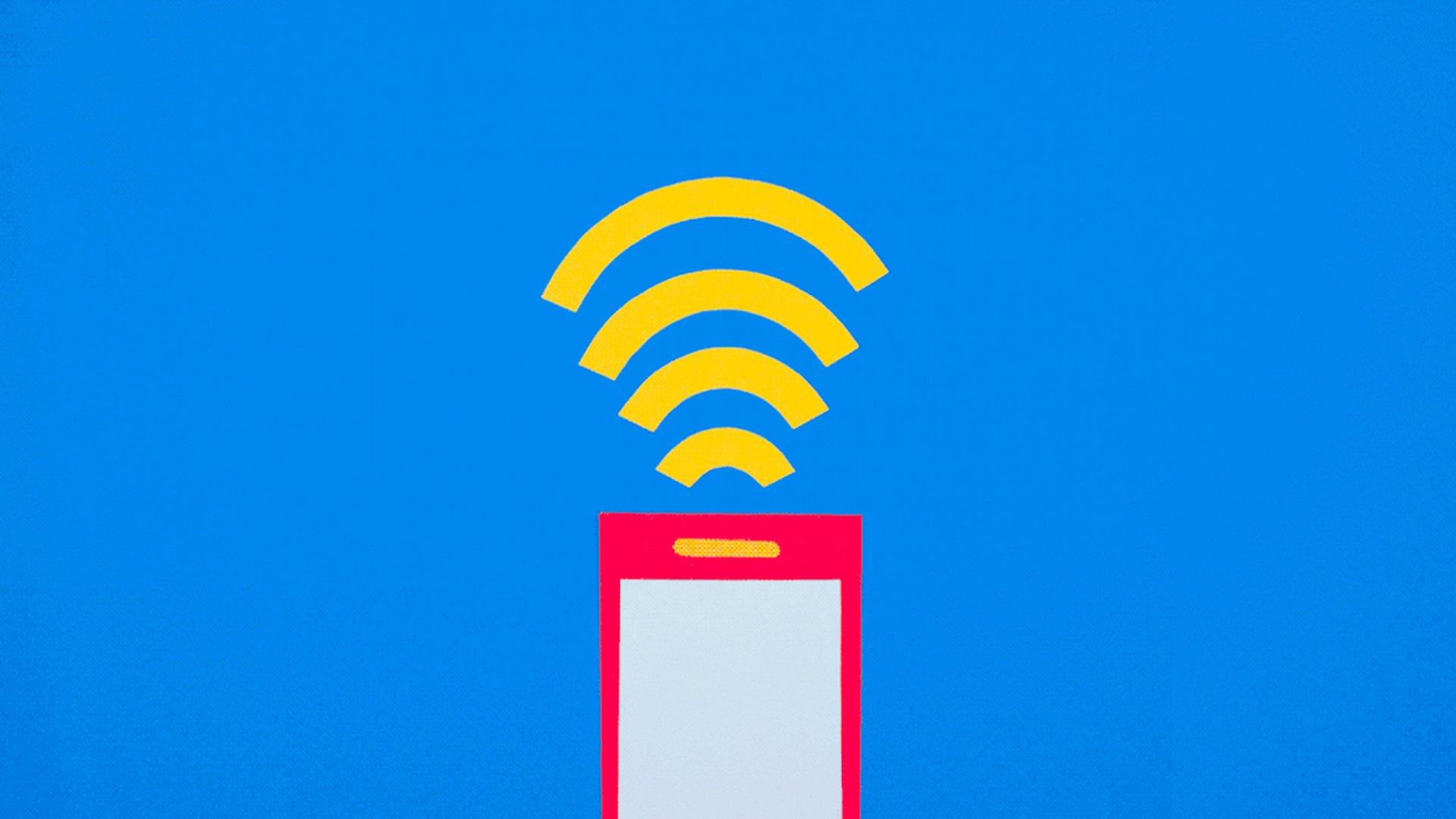Verizon and Dish spend big for 5G airwaves
Add Axios as your preferred source to
see more of our stories on Google.

Illustration: Sarah Grillo, Rebecca Zisser/Axios
The FCC has wrapped up its latest spectrum auction, with Verizon, Dish Network and cable companies among those with the most winning bids.
Why it matters: The auction was for midband 3.5 GHz airwaves — spectrum seen as ideal for 5G — offering a mix of faster speeds with the ability to also offer a wide coverage area.
By the numbers: Verizon won the most amount of spectrum, roughly $1.9 billion worth.
- Dish (bidding under the name Wetterhorn Wireless) spent more than $900 million.
- The next three spots were held by cable companies, led by Charter, which spent $464 million, followed by Comcast (bidding as XF Wireless Investment) at $459 million and then Cox, which spent more than $212 million.
The big picture: The U.S. has been comparatively slow to make new midband spectrum available for 5G. The result is that most wireless carriers have been either using two other options:
- Lower-frequency airwaves that can cover wide areas, but offers speeds only modestly better than LTE networks;
- And higher-frequency spectrum that can carry data very fast but only for a short distance. These signals also can have trouble penetrating buildings or other obstacles.
Yes, but: T-Mobile already has significant midband spectrum holdings which it acquired from Sprint (which in turn got the airwaves when it bought Clearwire). On Wednesday, T-Mobile announced it was adding 2.5 GHz 5G in parts of 81 more cities and towns.
What they're saying: NewStreet Research analyst Jonathan Chaplin said the bids from Verizon and the cable companies were about as expected, though Dish bid somewhat more than he had anticipated.
What's next: Another auction, for so-called C-band airwaves, is coming up in December. AT&T and T-Mobile are likely saving their spectrum dollars for that auction, Chaplin said.
